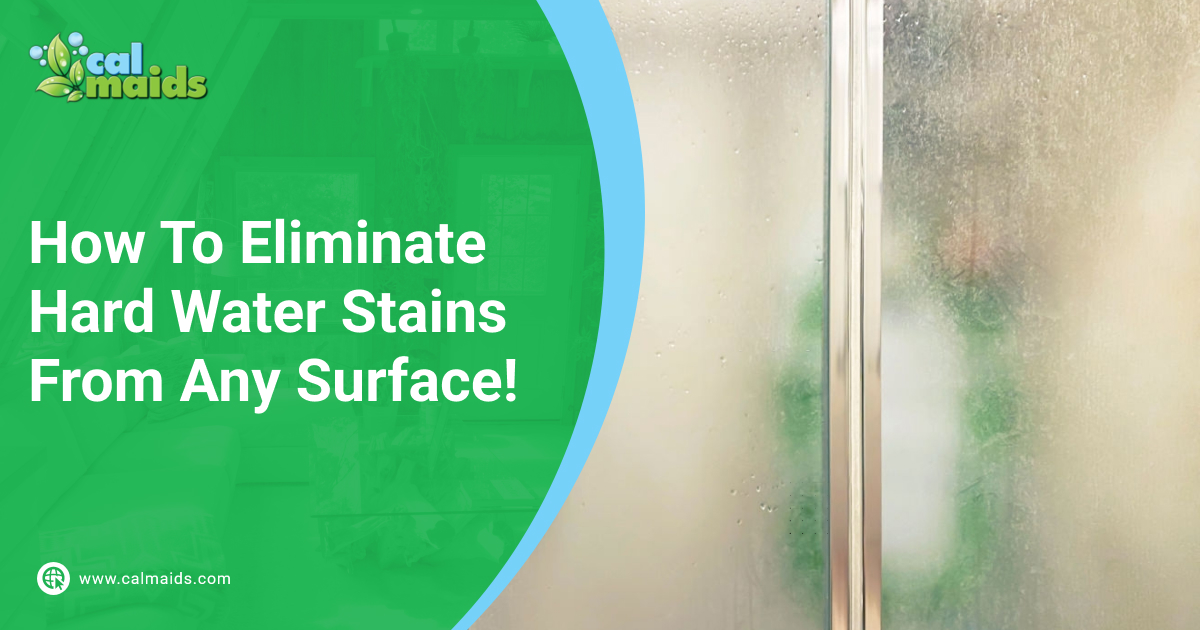Banishing hard water stains from any surface is a battle we’ve all fought. Just when you think you’ve triumphed over those stubborn marks, they reappear, mocking your efforts. The frustration intensifies as you realize these pesky white spots can invade various surfaces, each with its own texture and degree of buildup. But fear not, for we’re here to equip you with the ultimate arsenal against hard water stains. Ever wondered why these stains form in the first place? It all comes down to water carrying dissolved minerals, with some areas having higher concentrations than others. When water evaporates, the minerals are left behind, culminating in those unsightly clumps known as hard water stains or limescale.
Thankfully, the solution is at hand, and we’re about to reveal the best techniques to tackle this issue head-on. Join us as we dive into the secrets shared by the experts, brought to you by the knowledgeable housekeeping professionals. Get ready to bid farewell to hard water stains and say hello to sparkling surfaces once again. Keep scrolling to discover the magic!
How to get rid of hard water stains
While there are various methods and products to remove hard water stains, not all of them are adequate for all surfaces. Pick the one that suits your needs.
Method #1. Distilled vinegar
The acetic acid in the distilled vinegar is perfect for breaking down the minerals’ structure, therefore removing hard water stains.
To begin, fill a spray bottle with half and a half parts of distilled vinegar and water. Next, spray it all over the surface and let it do its magic for 30 minutes.
Depending on the stains’ toughness, use a microfiber cloth or a soft-bristled brush to remove them. Finally, rinse with clean water and dry thoroughly to avoid more hard water stains.
Warning: Distilled vinegar can still ruin some surfaces even if it is less acidic than cleaning vinegar. So, spot test first to discard any damages.
Method #2. Lemon juice
Lemon is as strong as vinegar against hard water stains. However, you shouldn’t use it on granite, limestone, travertine, onyx, and marble surfaces, as they can get eroded. If you are unsure, spot-test it first.
The amount of lemon juice to collect is up to your needs. Then, you can apply it with a spray bottle and let it act for 10 to 30 minutes, depending on how difficult the spots are.
After the time is up, use the rough side of a kitchen sponge or a microfiber cloth to scrub the stains, depending on how delicate the surface is. Even if you don’t notice any stain, wipe the entire area to remove any forming buildup. To finish, rinse and dry with water and a clean cloth.
Method #3. Hydrogen peroxide and cream of tartar
Use this method for surfaces where you can’t use acidic solutions. You’ll just need to cover the area with hydrogen peroxide and let it act for 10 minutes before wiping it off.
For tougher stains, you can form a thick paste by mixing cream of tartar and a few tablespoons of hydrogen. Once done, rub it onto the stain in circular motions, then put paper towels over it to let it sit for 30 minutes. After half an hour, wipe it with a damp cloth to remove any residue.
Let the professionals lend you a hand!
Do you want to eliminate all the hard water stains but don’t have enough time? CalMaids has your back! Our hand-picked maids will take care of those nasty stains as they thoroughly clean every space in your home. Book with us and enjoy the #1 cleaning service in San Jose, CA!



